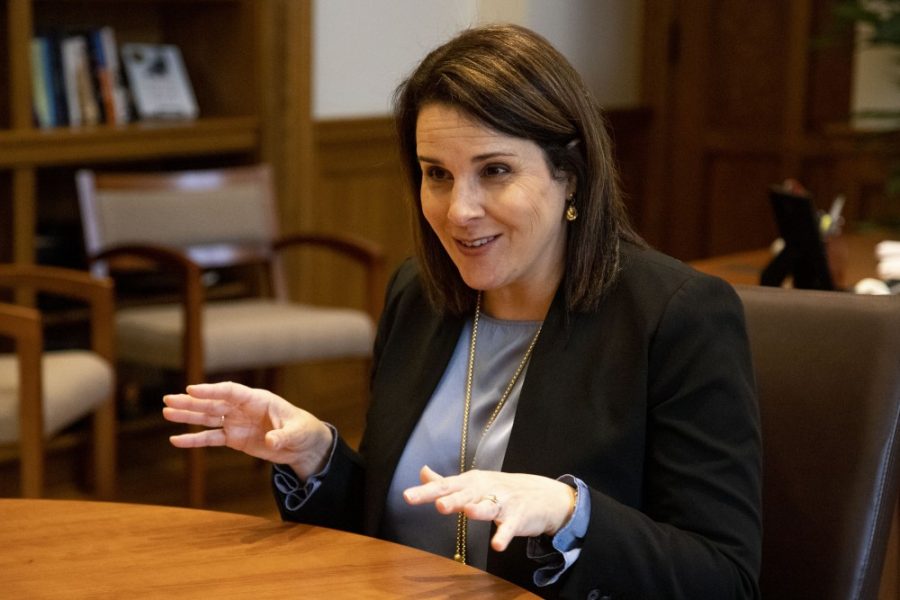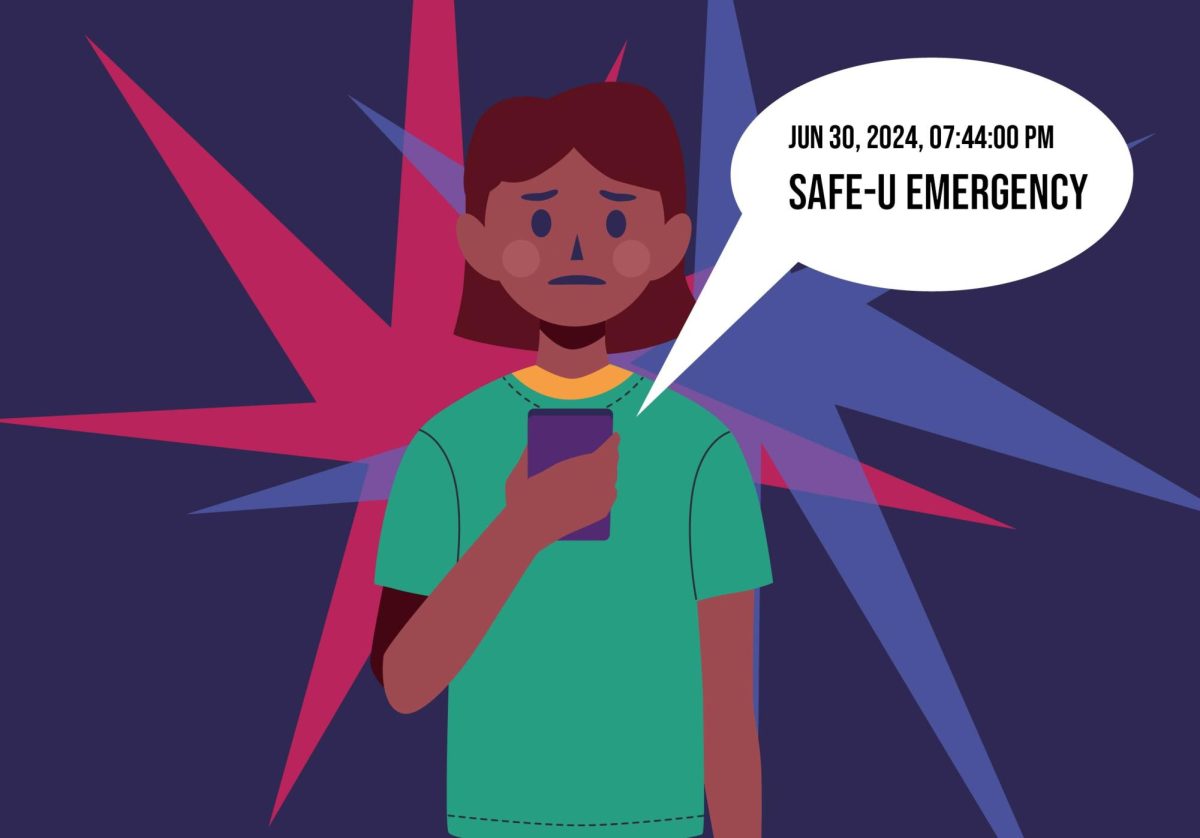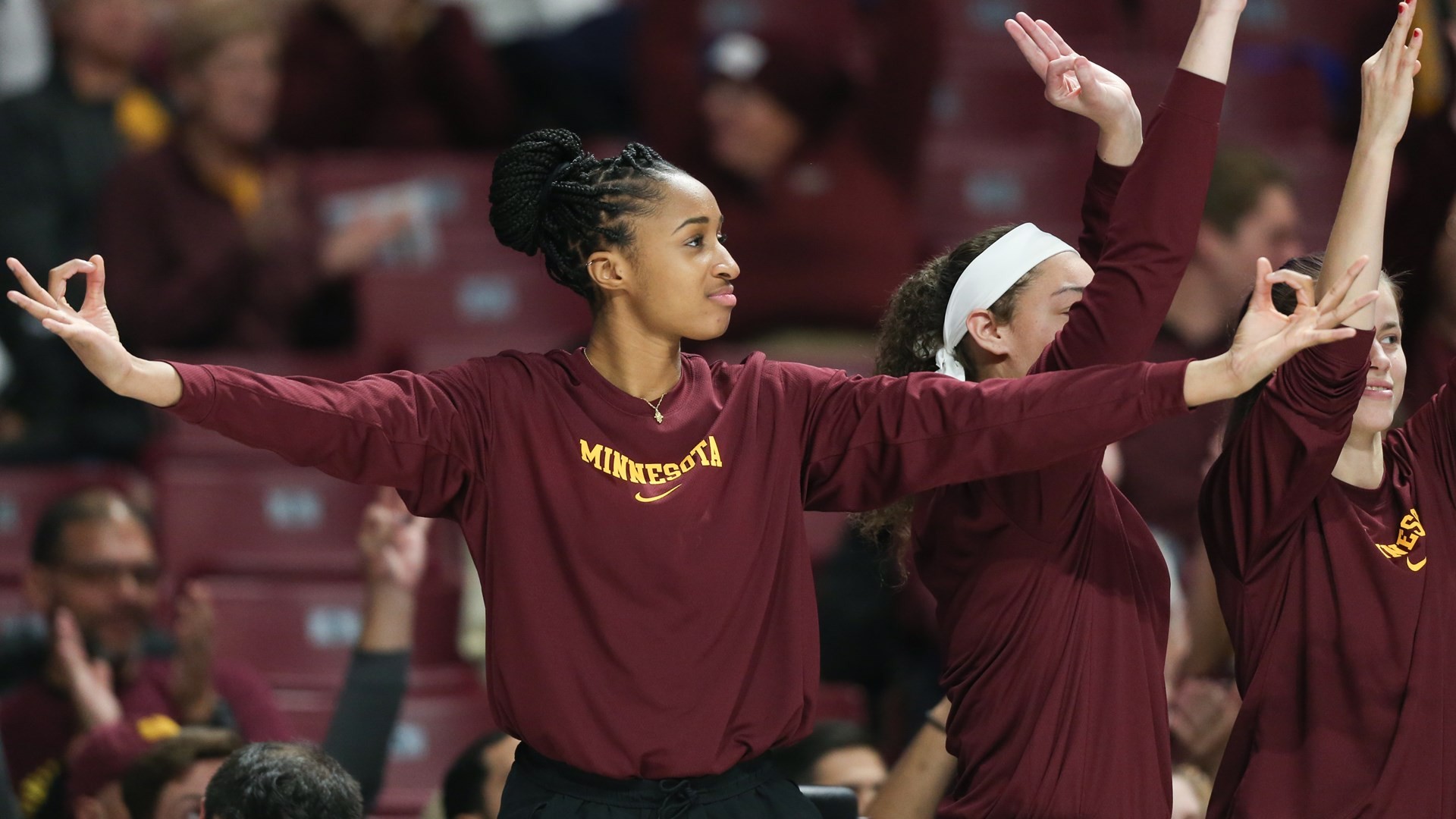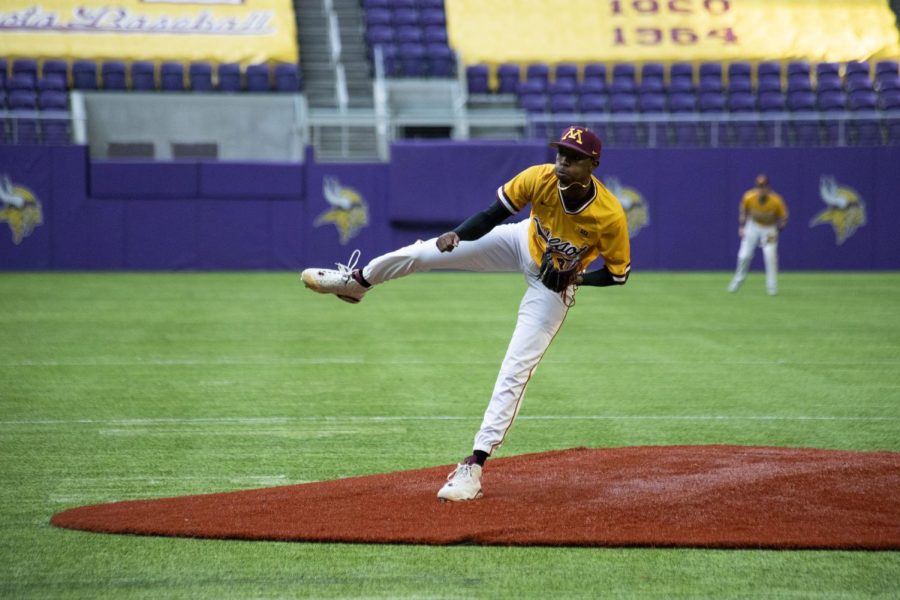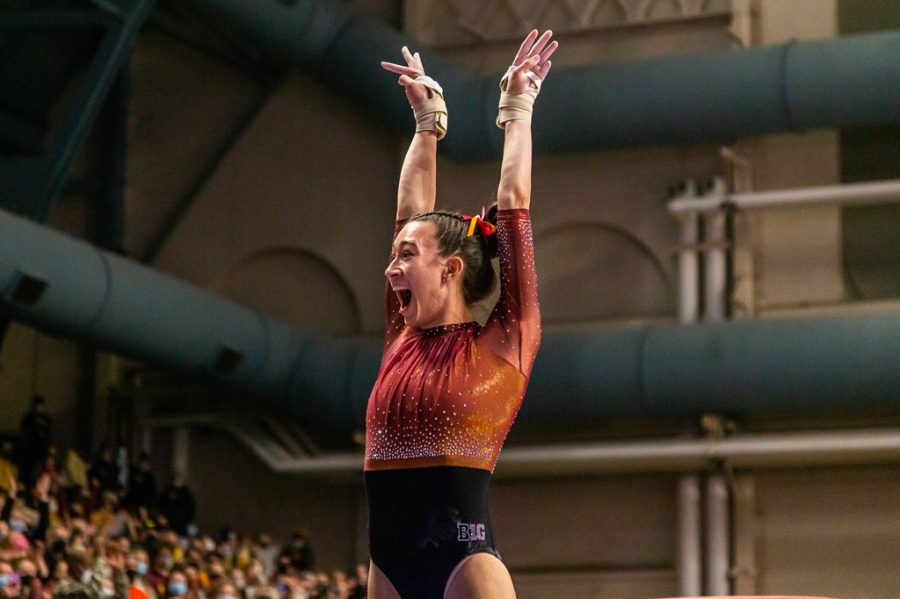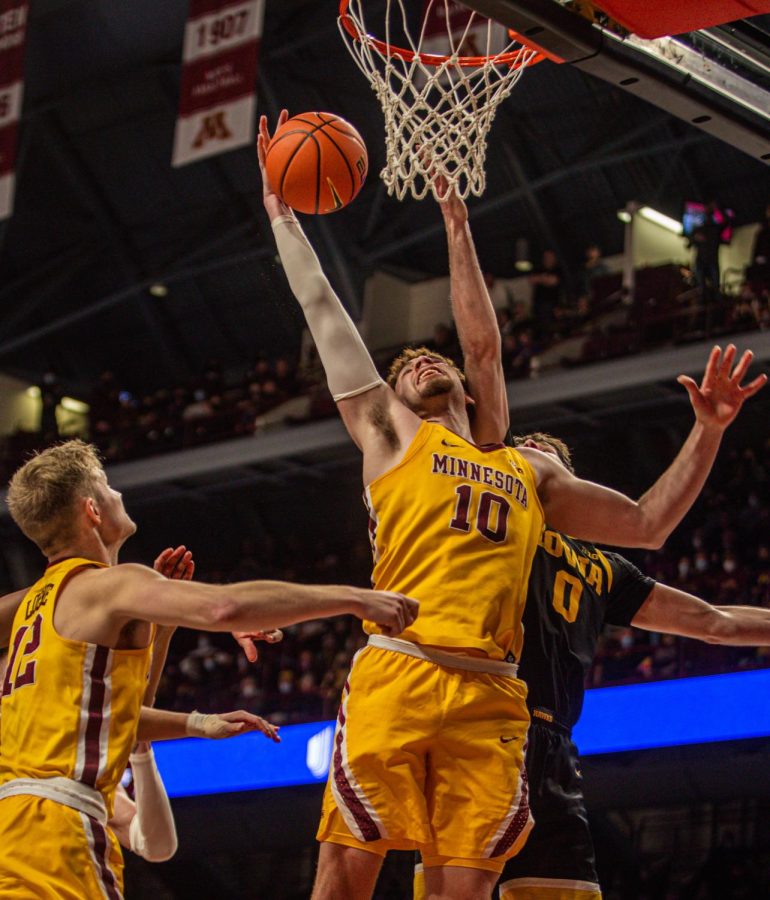University of Minnesota President Joan Gabel reflected on the past academic year and discussed goals and priorities for the future in a virtual interview with the Minnesota Daily Monday.
Gabel also discussed the continued calls for change in the University of Minnesota Police Department prompted by the recent police killing of Daunte Wright and murder of George Floyd last year. Additionally, Gabel announced Karen Diver as the new Senior Advisor for Native American Affairs. Driver had previous experience in a similar position at the University of Arizona.
The Minnesota Student Association recently sent a formal letter to yourself and Myron Frans calling for the resignation of police chief Matt Clark. What is your response to this letter? How are these concerns being considered within the University’s administration?
“We replied to that demand by declining to seek Chief Clark’s resignation. Chief Clark has been deeply committed to a safe community in every sense of that word, and not just by words, his actions have reflected that, the training that he’s mandated and the way in which the department operates. And as a result, we not only support him, but encourage him to continue in this direction of leadership and look forward to having him actively participate in the implementation of the MSA recommendations.”
Since the police killing of Daunte Wright and widespread protests in Brooklyn Center, what steps has the University taken to address calls for change within UMPD? You’ve mentioned that the University’s involvement in police task forces was being reviewed and reassessed, what does that look like? How are those conversations progressing?
“All police departments participate in some form of mutual aid because otherwise you would need much larger police departments. So this is part of how you keep your police department of an appropriate size. After George Floyd was killed, we made the decision to very much limit our partnership with MPD, which limited our ability to look to them for mutual aid, which was by design and an intentional decision, but that means we have to get mutual aid elsewhere. We’ve had events, both with and surrounding Daunte Wright’s killing that have made our campus community grow increasingly concerned about whom we offer mutual aid and from whom we receive mutual aid. Those are legitimate questions and they suggest that what we should do is think about this from a shared governance policy perspective, that there be guiding policy that our campus community can participate in developing, going forward.”
“We’ve asked the MSafe team to do that first, we’ve asked them to elevate it as a priority. So developing policy is not a finger snap or a switch flip, it takes time and we’re about to go into summer. It’s unlikely, because we want students to participate, that that policy will start to take shape until the next academic year.”
Over the past academic year, the University has made numerous decisions and changes on various topics, sometimes over long periods of time and other times extremely quickly. Looking back over the past year, what is a time where you felt the University made a successful decision? What is something you think the University “got right”?
“I think we have done a lot of the right things that need to be done to think about what it means to keep a community safe. I know there is very strong disagreement about that, very polarized, conflicting disagreement about what safety means and how one goes about achieving it, but I think that in light of that and perhaps because of that disagreement, we’ve created very inclusive shared governance methodologies and we are moving forward deliberately. I think we’re in the process of getting that right. It’s not done yet.”
“I think how we protected the students from the costs of the pandemic was right. [It was] very challenging, most of our peers raised tuition last year. But it was really important for us not to and it was during this time that we announced the $50,000 promise. That was also not easy, but a really important decision to set priorities so that our most financially challenged students can feel secure and continue their education and have all of the learning and skills that they need in order to have a life well lived.”
On the other hand, what is one topic or decision the University made that you feel was not necessarily the right option looking back?
“The biggest issue over the past year in my mind still was that very early decision around the housing and dining refunds, both in the decision and how the decision was made. We fixed it very quickly and very transparently and learned a lot from it, which is why I think we haven’t had other mistakes like that at that level. I mean, there have been lots of tweaks that we’ve had to make as new information came to light or as our scientific understanding of the circumstances came to light, or as the social questions resulting in calls to action came to light, that we’ve had to modify. There have been disagreements about our decisions along the way, in both directions.”
Students, staff, faculty and community members in general have voiced their opinions and criticism of the University’s decisions over the past year, in relation to the pandemic, responses to social issues and other topics. How does this criticism impact you?
“I receive emails, I’ve received phone calls. I’ve closed most of my social media because it wasn’t productive, but people still managed to find me there through my kids and through my family members. People stop me on the street, so I hear pretty regularly from my critics. It’s not really like there aren’t open channels of communication.”
Looking ahead to the 2021-22 academic year, what stands out to you as a main priority for the University?
“The main priority for next year is to get us back to more normal campus operations safely. That’s not very glamorous, but it is what will take up a lot of our attention, because we’re not out of the woods completely. Also related to health, the PRISMH initiative should be up and running around student mental health and we’re very excited to see the outcome there. We are also working really hard to think about how all of these lessons around technology form perhaps the launch of new programs. We will also be welcoming to our leadership team, Karen Diver as the inaugural Senior Advisor for Native American Affairs.”










